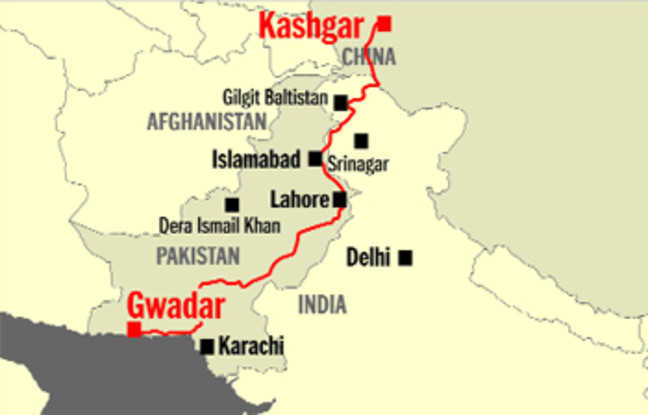Virendra Pandit
New Delhi: China has completely exposed itself by opposing India holding G-20’s key meeting on tourism in Jammu and Kashmir next week, at a time Beijing’s own China-Pakistan Economic Corridor (CPEC) construction is underway through the disputed land between India and Pakistan.
Days after China, in a joint statement with Pakistan, raked up the Kashmir issue afresh, it announced on Thursday that it will not attend the G-20 Tourism Working Group meeting in Srinagar scheduled from May 22 to 24, as it is “firmly opposed” to holding such meetings in a “disputed territory.”
“China firmly opposes holding any form of G-20 meetings on disputed territory,” Chinese Foreign Ministry spokesperson Wang Wenbin told a state-controlled media briefing in Beijing in response to a planted question in a country that claims to be the “world’s largest democracy.”
“We will not attend such meetings,” he added.
India countered the objection on Friday by saying it is free to hold meetings on its own territory, adding peace and tranquility on its border is essential for normal ties with China, which had itself invaded Eastern Ladakh in mid-2020.
The G-20 meeting in Srinagar is a “big opportunity” for Jammu and Kashmir to showcase its tourism potential, Union Minister Jitendra Singh said on Wednesday. Such an international event taking place in Srinagar would send a positive message in the country and across the globe.
As predicted, despite its own existential crisis, Pakistan also opposed India’s decision to hold a G-20 meeting in Jammu and Kashmir. New Delhi rejected Islamabad’s nasty objections and empty threats.
China’s decision to skip the G-20 Summit is linked to the objections raised by its close ally Pakistan. Beijing did not attend another G-20 meeting held in Arunachal Pradesh in March.
Earlier this month, China and Pakistan raked up the long-standing dispute in a joint statement reiterating their position that the Kashmir issue should be properly and peacefully resolved in accordance with “the UN Charter, relevant UN Security Council resolutions and bilateral agreements.”
Supporting Pakistan, China said the Kashmir dispute between India and Pakistan was a ‘leftover’ from history and should be resolved as per the UN resolutions while avoiding any unilateral action.
External Affairs Minister Dr. S Jaishankar had, at the recent SCO meeting in New Delhi, launched a sharp attack on his Pakistani counterpart Bilawal Bhutto Zardari, saying, “They have nothing to do with the G-20, nothing to do with even Srinagar and Kashmir. They should answer when they will vacate the illegally occupied territories of Jammu and Kashmir.”
“We have consistently rejected such statements and all parties concerned are well aware of our clear position on these matters. The Union Territory of Jammu & Kashmir and the Union Territory of Ladakh are and always will be integral and inalienable parts of India. No other country has a locus standi to comment on the same,” the Ministry of External Affairs remarked on unsolicited comments by Pakistan and China.
India and China have been locked in a lingering border standoff in Eastern Ladakh for three years. The bilateral relationship came under severe strain following their deadly clash in the Galwan Valley in Eastern Ladakh in June 2020.
India has maintained that the bilateral relationship cannot be normal unless there is peace in the border area.

